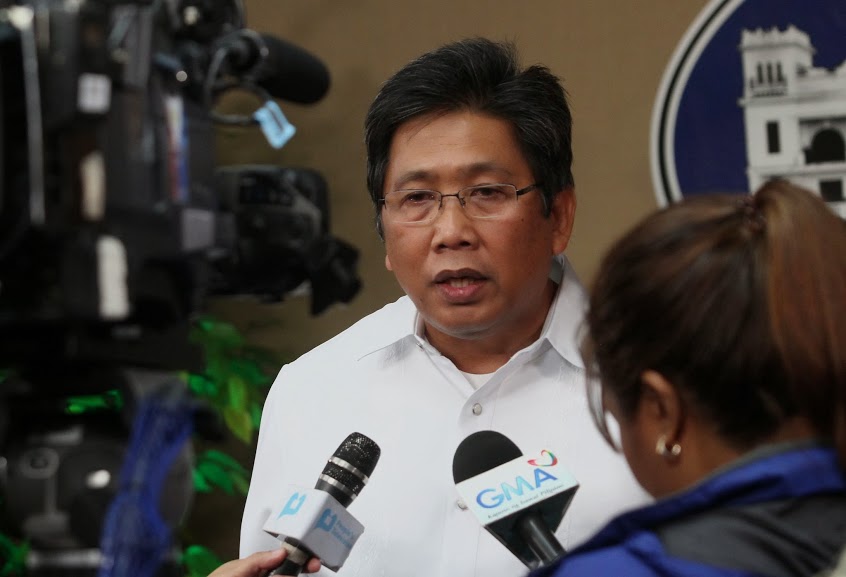Philippine News
Coloma: Constraints on PHL credit ratings being addressed

Presidential Communications Operations Office Secretary Herminio Coloma Jr. answers questions from the media in a press briefing on Malacanang Friday when he advised people to remain vigilant until the exit of Typhoon Yolanda from the Philippine area of responsibility. He also commended the people along the typhoon path for heeding the call of the government to evacuate and take the necessary precautions as the typhoon approached. (Photo by Robert Viñas/Rodolfo Manabat/Malacanang Photo Bureau)
MANILA (PNA) — Presidential Communications Operations Office (PCOO) Secretary Herminio Coloma Jr. on Friday said issues raised by Standard & Poor’s (S&P) regarding the ratings constraints on the Philippines are being addressed.
His reaction came a day after the debt watcher upgraded a notch higher its investment grade rating on the country to “BBB” with stable outlook, which in turn is given a year after S&P gave the country an investment grade rating of “BBB-“.
In a Palace briefing, Coloma said the Aquino administration is doing its best to implement solutions on the problems cited by the ratings agency namely: the narrow revenue base, shortage of basic infrastructure and government services, and the low income level in the country.
He said the Bureau of Internal Revenue (BIR) continues to introduce reforms that would ensure increase in tax compliance.
Coloma also noted that tax to GDP ratio of the Philippines went up to as much as 16-17 percent before the 1997 Asian financial crisis or during the term of President Fidel V. Ramos.
However, it declined after the crisis and is currently at about 12 to 13 percent to GDP.
”Under the Millennium Development Goals and the Philippine Development Plan, we target to bring it up to the level similar to that during the Ramos administration,” he said.
On the issue of lack of necessary infrastructure, the PCOO chief said the Aquino administration has increased infrastructure spending over the last three years and has strengthened program on this through the public-private partnership (PPP) initiative.
The government has listed several minor and major projects such as construction of roads, bridges and school building under the PPP program.
To date, seven projects under the list have been awarded and these are the Daang Hari-SLEX Link Road, PPP for School Infrastructure Project (Phase 1), NAIA Expressway Project, PPP for School Infrastructure Project (Phase II), Modernization of the Philippine Orthopedic Center (MPOC), Automatic Face Collection System (AFCS), and the Mactan-Cebu International Airport Passenger Terminal Building.
”When this program comes into fruition the number of our infrastructures will increase,” he said.
On the issue of low income levels, Coloma said the government has strengthened its social protection program by implementing the conditional cash transfer (CCT) program, which is not a dole out program by simply giving out aid as it requires the beneficiaries to also do their part by ensuring that their health and basic educational needs are met.
Mothers who are part of the CCT program are required to go to health centers if they are pregnant while students who belong to the CCT-beneficiary families are required to go to class.
Coloma said all these programs are targeted to address the economy’s ratings constraints “and covert these to become among the strong drivers of domestic growth.” (PNA)
LGI/JS/UTB





















